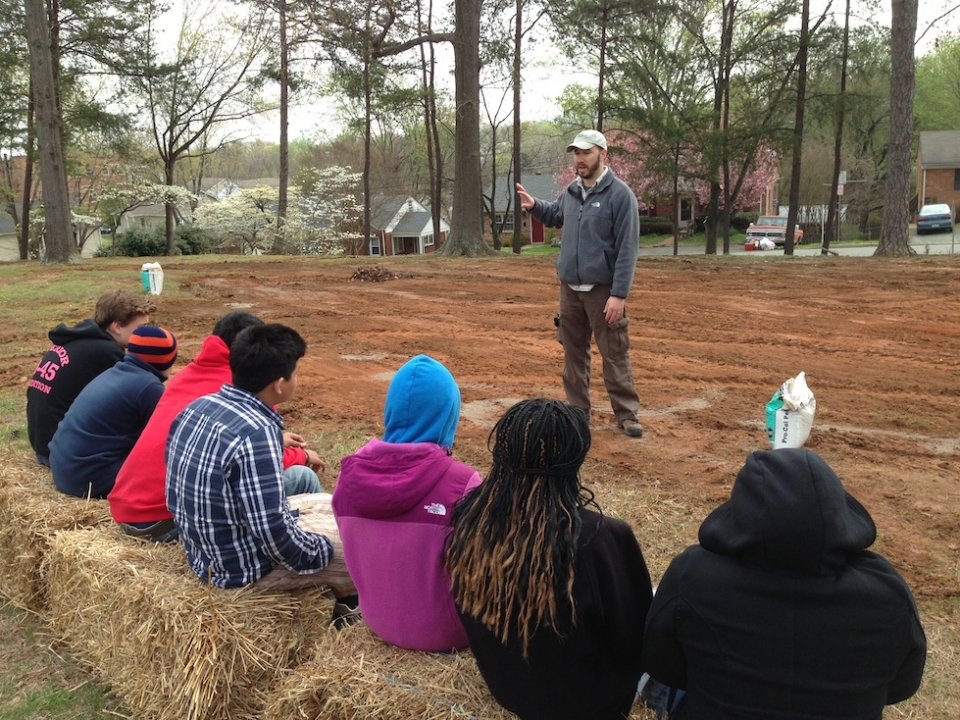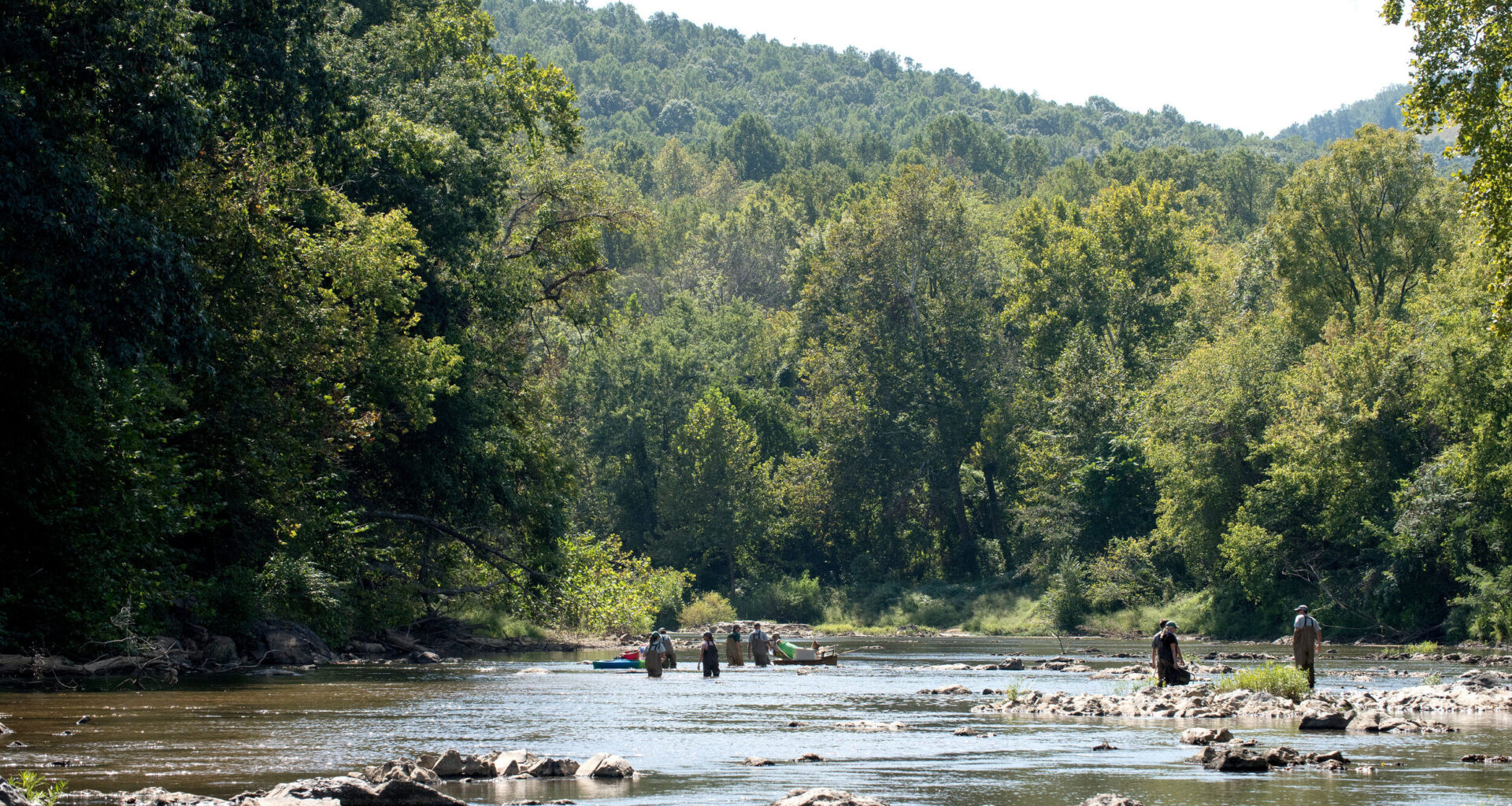To Charlottesville residents, the Rivanna River conjures fond memories of walks along the banks and enjoying the water by wading, fishing or tubing. The river’s influence also extends beyond contemporary recreational use.
The Rivanna watershed is home to nearly 500 square miles of forest and several essential species and holds historical significance to the Monacan Indian Tribe. The river also connects with the James River, which, in turn, feeds into the Chesapeake Bay – meaning that keeping the Rivanna clean protects the entire 64,000-square-mile Chesapeake Bay watershed.
The Rivanna Conservation Alliance (RCA) recognizes how critical it is to protect and conserve this invaluable natural resource. RCA tackles river health and safety issues, mobilizes current river lovers and nurtures a lifelong passion for conservation in Charlottesville’s children with engaging educational initiatives.
Keeping the River Healthy Through Stewardship
Understanding river conditions – including water levels and the insects and bacteria inhabiting streams – is essential to keeping the Rivanna healthy. Once a week, River Stewards Justice Altice and Devon Hathaway take to the water in paddle boats to assess river health. RCA also welcomes volunteer monitors interested in helping collect samples.

From there, the stewards and RCA’s outreach team distill their findings into reports that the public can easily understand.
“RCA came together from a merger of an outreach group whose goal was to get people on the water appreciating the river and another group based on scientific data collection and analysis,” Hathaway said. “We still wear both of those hats. We take raw data when we’re monitoring the streams and analyze it, and then we get that analyzed data out to folks to paint a picture of the state of the watershed’s health.”
Inspiring Future Conservationists
RCA also leads several educational programs for children to spark an early interest in conservation. RCA’s team offers immersive and fun learning opportunities in sixth-grade classrooms, at pop-up events and on field trips. Children play with three-dimensional models of the watershed that demonstrate how they and their families’ everyday decisions impact the river and perform hands-on testing in the streams to learn about river ecosystems.
“A lot of the kids we work with haven’t spent much time in streams,” said Addie Klimek, RCA’s environmental education program coordinator. “It’s hard to care about something you don’t understand. Hopefully, [the programs] inspire some future environmental scientists or even encourage the kids to go home to their families and talk about what they’ve learned. Maybe those conversations will lead to sustainable choices or an increased awareness of the river and how we can all help as individuals.”

At a recent summer camp hosted by the University of Virginia, RCA offered students the chance to kayak on the river — many for the first time.
“Right before we got on the river, a few of the kids were saying things like, ‘I’m scared,’ or ‘I’ve never done this before,’” said Sophie Elliott, RCA’s development and communications coordinator. “By the time they got on the water, they were having a blast. I was thinking about how fortunate a lot of us are to be able to go and get on the river and how establishing a love for the river itself is important.”
The Rivanna River Needs Your Help
RCA’s latest Stream Health Report was concerning. Eighty-two percent of the sites RCA sampled did not meet Virginia water quality standards. Poor water quality seriously endangers the habitats and people who rely on the river.
Support for RCA’s cleanup and restoration programs is particularly vital when river health is poor. Informed by stewards’ reports, RCA volunteers clear trash and other hazards and plant stream buffers to slow the movement of water that carries pollutants. For those who prefer indoor opportunities, RCA welcomes volunteers to staff exhibits at community events and assist with RCA’s educational initiatives.
To learn more about RCA and how you can support its work, visit its website.










